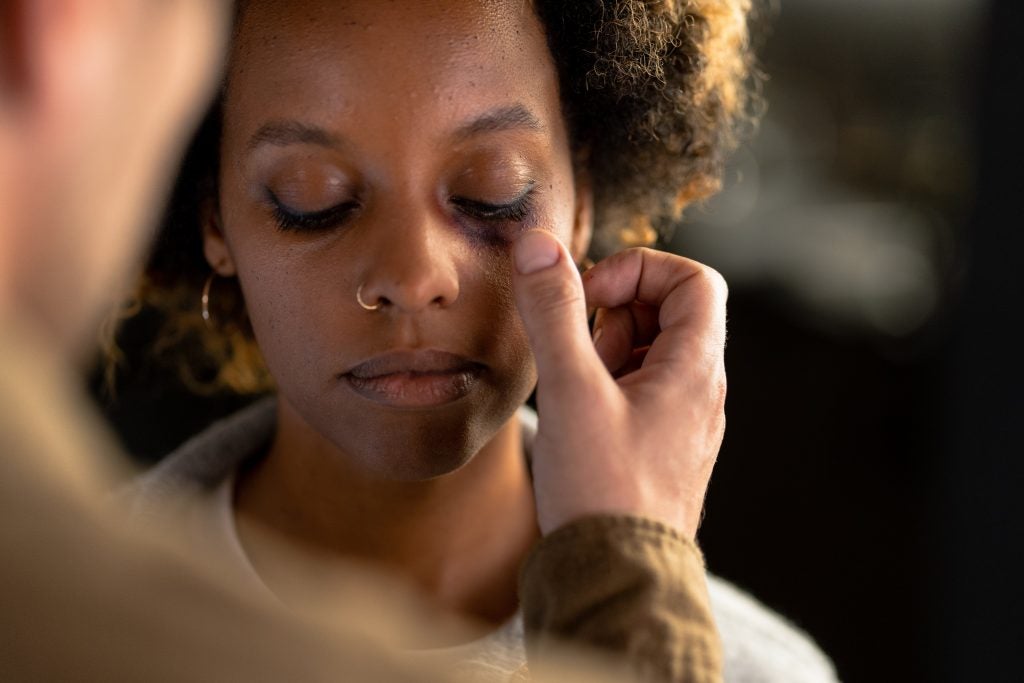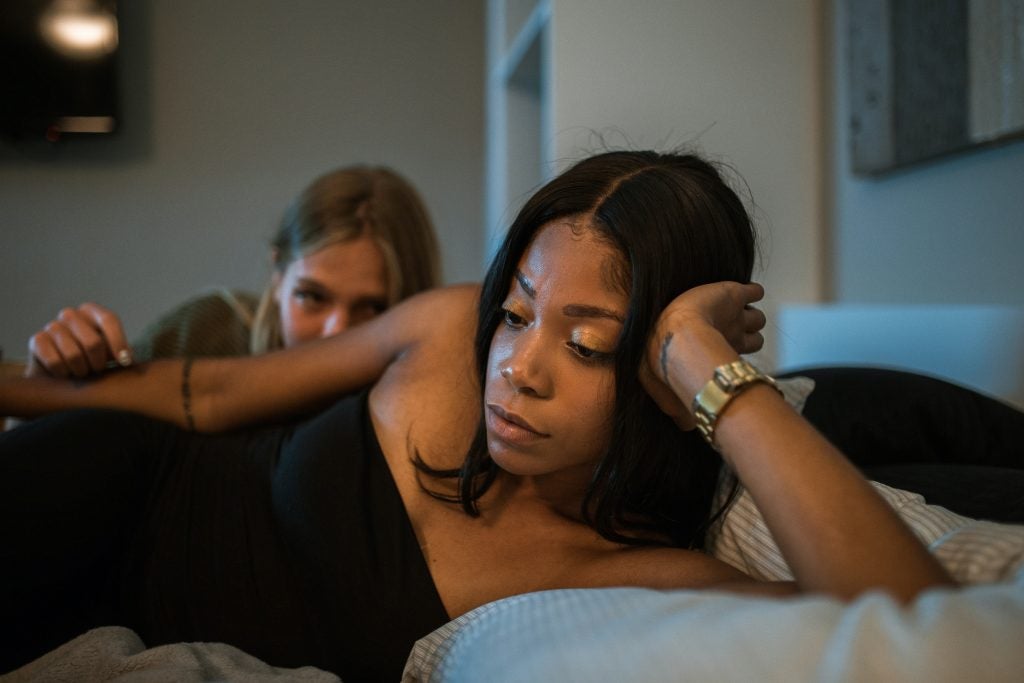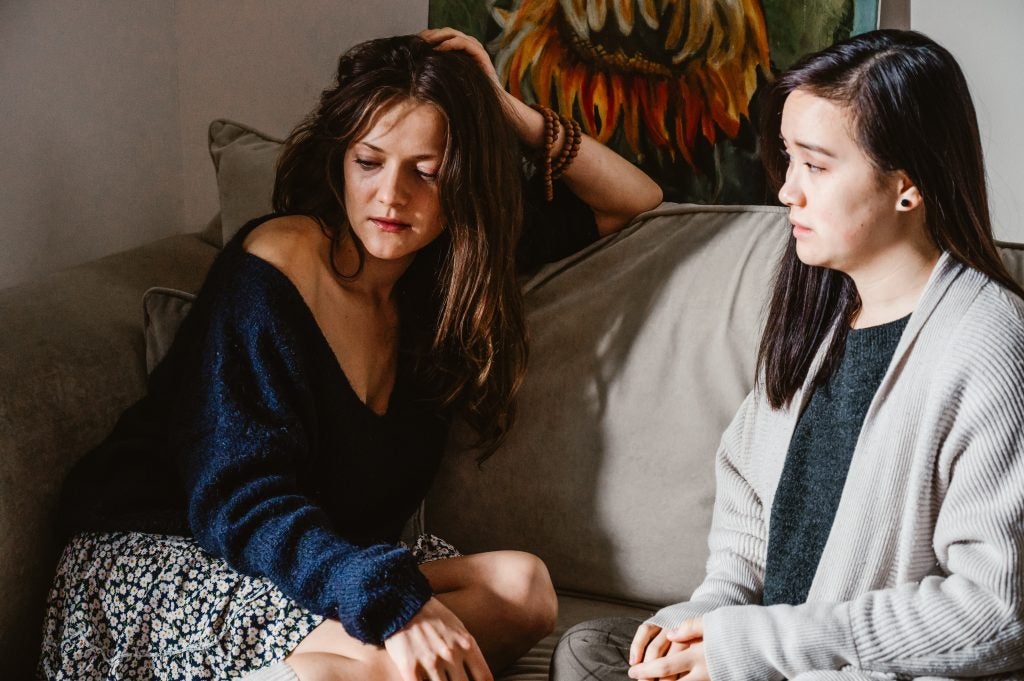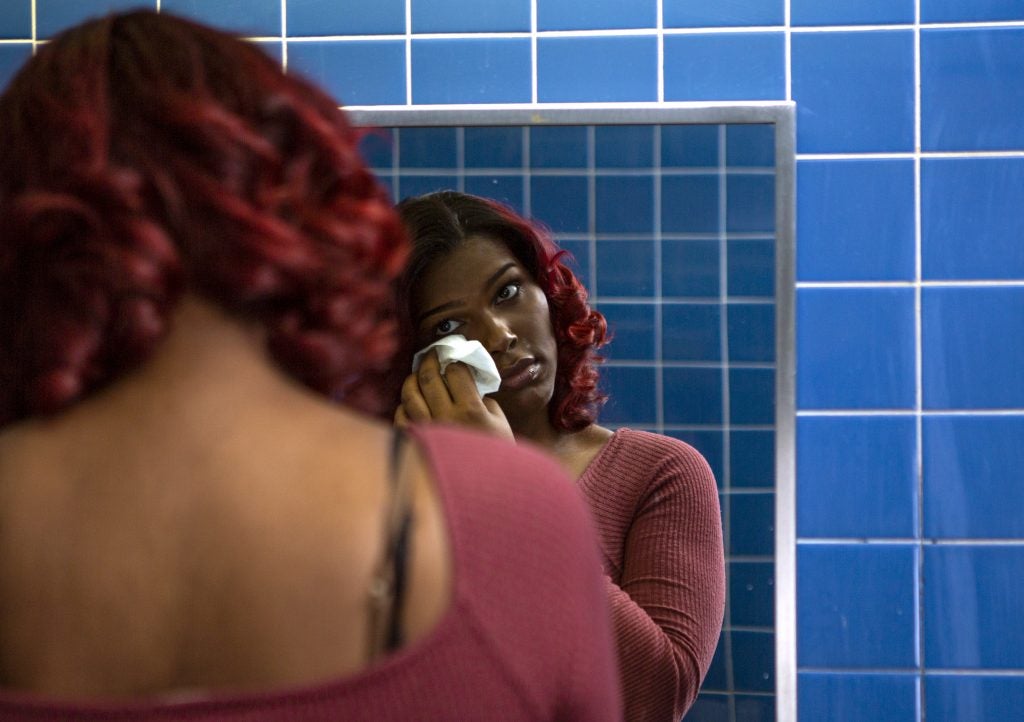Disclaimer: We acknowledge that there are many different words that individuals use to describe themselves after experiencing sexual assault. In this article we use the term ‘survivor’ for the sake of consistency. We acknowledge that there are many different ways of processing sexual violence, and believe each individual person should choose the language that they are most comfortable with.
Table of Contents
What Is Domestic Violence?

Domestic violence, or interpersonal violence, is a pattern of abusive behaviors that are used to exert power and maintain control over a person. Domestic violence can take many forms including, but not limited to, sexual, emotional, physical, and mental abuse. Perpetrators and survivors can be anyone, regardless of gender, age, race, socioeconomic status, or sexual orientation.2
Why Would a Survivor Choose to Stay With Their Abuser?

It is very common to hear the question, “Why do they stay?” Answering this question is not simple or easy. There may be a multitude of reasons why a survivor chooses to stay in an abusive relationship. It may be hard to understand why a loved one chooses to stay, but it is important to try to see it from the survivor’s perspective. Abusers use different tactics to maintain control over their partners that may cause the survivor to choose to stay in the relationship.
Reasons Why a Survivor May Choose to Stay With Their Abuser
Below is a list of reasons why a survivor may choose to stay with their abusive partner.1 A survivor may choose to stay because of one or a combination of these reasons.
Societal Pressures
Survivors may feel pressured by friends and family to stay with their abusers. Society places pressures upon people to be in relationships, especially as we grow older. If their partner is well liked by others, the survivor may feel especially pressured to stay.1
Love
Violence is typically not the sole aspect of a relationship. The survivor may have fond memories with their partner. The domestic abuse was most likely not present in the beginning of the relationship. It may have slowly developed over time. The survivor may be holding on to their happy memories and hoping that their relationship will return to the way it once was.1 Domestic abuse commonly takes the form of a cycle known as the domestic abuse cycle. Not every phase includes violence, which may play a part in convincing the survivor to stay in the relationship.
Financial Dependence
Many people in abusive relationships are financially dependent on their partners. Batterers may not allow their partners to work outside of the home as a way of gaining control over their partner. If the survivor does work outside the home, their partner may also ensure control by withholding money and other resources.1
Lack of Resources
Many batterers do not allow their partners to maintain close relationships with others. A survivor may lose their social support and feel as though they have no one to turn to for help. A survivor may choose to stay with their partner if they feel that they have no wear else to go. They may not have any close friends or family members whom they can trust enough to turn to for support.1

Fear of Safety
Batterers instill fear in survivors through threats of further violence and abuse. Batterers may threaten the survivor’s life if they attempt to seek help or leave them. Many survivors live in fear that their abuser will find them and hurt them if they decide to leave. If the survivor has children with their abuser, they may also be afraid for the safety of their children.1
Religious Beliefs
Some religions stress the importance of staying with a partner through the good times and the bad times, for better or for worse. Rather than leave a relationship, a survivor may feel they must stay because of the religious pressure. Their church may also disapprove or disallow of a divorce. The church may pressure the survivor to remain in the relationship. This causes the survivor to feel conflicted and may force them to choose their religious beliefs over their own safety.1
Societal Normalization of Violence
Unfortunately, many societies normalize violence against women. Although abusers can be any gender, it is most common for the abuser to be a male and the survivor to be a female. Many people in society hold the belief that females should be submissive to their husbands. Victim blaming can also make it difficult for survivors to seek help and support.1
Pregnancy or Children
A survivor may have children with the perpetrator and wish to protect them by taking on the abuse themselves. They may also feel as though it would not be beneficial for their children to grow up without a father figure, leading to further abuse. If the survivor is pregnant, they may fear for the future of the child’s life. The survivor may also fear for the safety of their children if they decide to leave.1

Fear of Being Outed
Domestic abuse is not uncommon among the LGBTQ community. Abusers may use sexual orientation as a form of control over their partner. Survivors may stay with their abusive partners if they are scared of being outed to friends and family.1
Low Self-Esteem
Many survivors choose to stay with their abusers due to their own low self-esteem. They may feel that they are incapable of being loved by another person, or that they won’t be able to find someone else. Their abuser may also instill these thoughts in their mind. Abusers sometimes use this as a tactic to maintain control over the survivor.1
Physical Dependence
Survivors who are physically dependent on their partners may feel forced to stay with their partners. If they have a disability, they may not have anyone else to turn to for medical care. This is common in relationships where the survivor is in a wheelchair or has a mental disability that requires physical help from a partner.1
Distrust of Police
Survivors may choose to stay with their partner if they fear going to the police. For many minorities, there exists a feeling of distrust with the police. They may fear that the police will choose to ignore their problem, or even blame them for the abuse.1
Immigrant Status
Some survivors may choose to stay with their abusers if they are illegal immigrants. Their abusers may use their status to exert control by threatening to report the survivor if they try to leave.1
Statistics
Domestic abuse is much more common among relationships than people may realize. It is also very common for survivors to choose to stay with their abusers. Below are some statistics on domestic abuse:3
- 1 in 3 women will experience some form of domestic abuse during their lifetime.
- Women of all races are equally vulnerable to intimate partner violence.
- 4,000 women die each year due to domestic violence.
- Survivors attempt to leave an average of seven times before leaving their abuser permanently.
- 75% of women killed by an abusive partner were killed during an attempt to leave the relationship.
Resources
If you or a loved one are experiencing domestic abuse, there are many resources available to help you navigate your options. Many shelters, hot lines, and businesses are dedicated to helping victims of domestic abuse. Do not hesitate to contact one if you believe that you or a loved one is a victim of domestic violence. Below is a list of hot lines and crisis centers that may be helpful for a person experiencing domestic abuse:2
- Domestic Violence Hotline: 0808-2000-247
- National Domestic Violence Hotline: 1-800-799-7233
- National Dating Abuse Hotline: 1-866-331-9474
- http://www.thehotline.org/resources/victims-and-survivors/
- (International) http://www.hotpeachpages.net/
If there is an emergency, always call 911.
Concluding Remarks
There may be many underlying reasons why a survivor chooses to stay with their abusive partner. If you know someone who is being abused, it is important to be understanding of their situation. Reassure your loved one that you are there to support them in any way possible. Try not to be judgmental and instead provide them with resources should they choose to get help. You cannot rescue them, the survivor must make the choice to get help or leave.
References
- “Why Do People Stay in Abusive Relationships?” Loveisrespect.org,
- “Abuse Defined.” The National Domestic Violence Hotline.
- Floridakeys.com. “Domestic Abuse Shelter – A New Beginning.” Domestic Abuse Shelter of the Florida Keys.
Last Updated: 12 November 2017.
